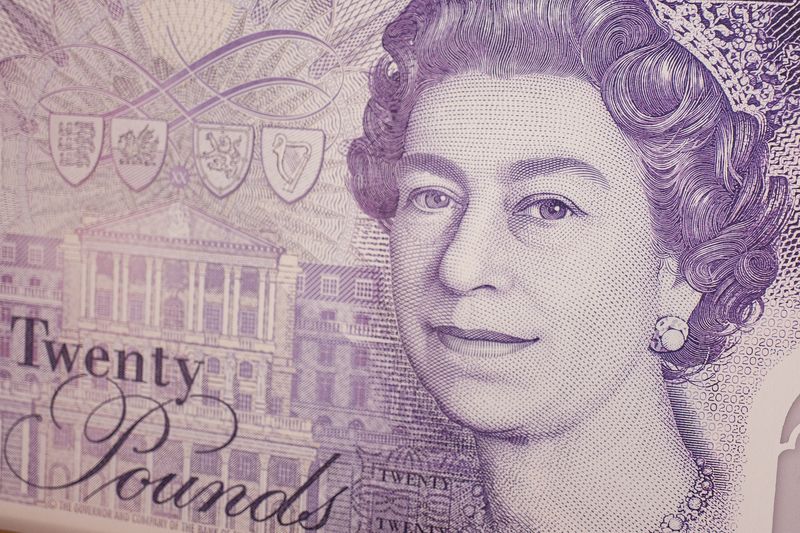(Reuters) -Sterling rose on Friday close to a 23-month high against the euro as investors expected the Bank of England (BoE) to raise rates next week and follow a path of rapid monetary tightening in 2022.
Analysts said the BoE's hawkish stance would boost the pound despite the tightening plans from the U.S. Federal Reserve providing some protection for the dollar.
"Key rates that rise by more than 25bp (at next week’s policy meeting) would help sterling if BoE governor Andrew Bailey were able to convince the market that the BoE has a plan," Commerzbank (DE:CBKG) analysts said, describing last year’s BoE announcements as "fickle."
The BoE’s decisions on rates wrong-footed markets in November and December.
Sterling was up 0.2% versus the euro at 83.12 pence, within striking distance of a 23-month high of 83.065 pence touched on Jan. 20.
Investors also focused on the BoE’s bond buying programme as the bank at its August 2021 meeting said the Monetary Policy Committee intended to begin reducing the stock of purchased assets once its main Bank Rate had reached 0.5%. A 25 basis point (bp) hike next week would take the rate to that level.
BofA analysts said in a research note they expected the BoE "to begin Quantitative Tightening (QT) by ceasing gilt reinvestments in March."
"We expect the BoE to have hiked Bank Rate to 1% by August and to begin active gilt sales in November," they added.
"QT will substitute for some rate hikes, so we see no Bank Rate hikes once active QT starts," they argued.
The dollar was slightly lower on Friday, but still heading for its best week in seven months as markets priced in a year of aggressive hikes in U.S. interest rates.
The pound rose 0.2% against the greenback to $1.3411.

Political risks remained in the background as an inquiry into potentially lockdown-breaking gatherings in Downing Street that might determine the future of Prime Minister Boris Johnson could be further delayed, after the police asked for the report to make only "minimal reference" to some events.
Britain hopes to secure significant progress in post-Brexit trade talks with the European Union by February and win the support of pro-British unionists in Northern Ireland, Foreign Secretary Liz Truss said.